News
Sri Lanka Rajapaksa clan presses for imperial presidency
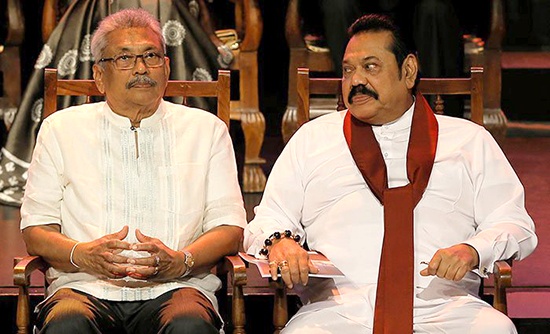
Constitutional amendment includes free hand to appoint justices and police chiefs
MARWAAN MACAN-MARKAR,
Asia regional correspondent
COLOMBO —
Sri Lanka’s political pendulum is swinging toward a strong, centralized state in the grip of an executive president with sweeping authoritarian powers, fulfilling a goal of the Rajapaksas, the South Asian nation’s most influential political clan.
The government of the ruling Rajapaksa siblings — President Gotabaya Rajapaksa and Prime Minister Mahinda Rajapaksa — has now set the stage for an imperial presidency. It did so by introducing a constitutional amendment in parliament, where the Sri Lanka Podujana Peramuna, the brothers’ political vehicle, enjoys an invincible majority.
The amendment, which would be the 20th, seeks to enshrine absolute presidential powers, complete with legal immunity for the hawkish Gotabaya, the younger of the two, during his term in office. The change would also free Gotabaya of existing parliamentary checks on executive authority and reduce the role of the prime minister to that of a rubber stamp for presidential decisions.
Other clauses would give the executive president a free hand to appoint the chief justice and judges of the Supreme Court and other high courts; he would also choose the police chief.
In addition, the amendment paves the way for a Sri Lankan who has dual nationality to be a parliamentarian. This would enable Basil Rajapaksa, another sibling and U.S. national, to become a lawmaker and a minister in the Rajapaksa administration.
Rajapaksa allies argue that an all-powerful executive echoes the political mood in the country, where the brothers have tapped into an ultranationalist, majoritarian sentiment to win two decisive electoral victories, in November’s presidential balloting and in August parliamentary elections.
The SLPP won the backing of the Sinhala-Buddhists, the country’s majority ethnic community, with a campaign for a centralized government anchored by a strongman president to succeed a right-of-center administration that was divisive, dysfunctional and prone to backstabbing to settle political scores.
“The people have given [Gotabaya] a huge mandate, and after that are we to clip his wings so that he can’t do the job?” asked Gamini Lakshman Peiris, education minister and head of the ruling SLPP. “Is it right that we do not empower the president as that is what the people wanted?”
Peiris was asking his rhetorical questions last week during a news conference.
His jabs came ahead of a Supreme Court session that will hear 39 petitions filed by opponents of the 20th amendment. Since the nation’s legislative and judicial systems do not accept any court challenges on laws passed by parliament, most of the petitioners — ranging from opposition lawmakers to political activists — are rushing to push the justices to rule that the amendment needs to be approved by a national referendum, in addition to it needing to win a two-thirds majority in the 225-member parliament.
Lawyers expect the judges to examine the amendment’s potential to undermine entrenched clauses in the constitution that protect the sovereignty of the people. “The problem with the 20th amendment,” said Sudarshana Gunawardena, a Sri Lankan human rights lawyer, “is that certain clauses give the president powers, such as when to dissolve the parliament, that will affect the people’s sovereignty. The court may also take note of the concerns expressed by a group of retired judges and the Bar Association [of Sri Lanka] about the amendment because they are knowledgeable about constitutional matters.”
History favors the Rajapaksas. Previous amendments to the 1978 constitution have not been subject to a national referendum. Parliament’s makeup also favors the brothers, whose political juggernaut has given the SLPP 145 seats. The party is confident of attracting five more votes from smaller parties to meet the two-thirds threshold.
Sri Lankans have had a taste of Rajapaksa political dominance before, during elder-brother Mahinda’s nearly 10-year presidency, which ended with his shock defeat in January 2015. That decade was marked by an authoritarian character and by the brothers presiding over an administration that saw government troops defeat the Tamil Tiger separatist, ending a nearly 30-year ethnic war. The tough-talking Gotabaya served as Mahinda’s defense secretary during the term.
The proposed amendment has generated a heated debate in the mainstream media, led by liberal and progressive-minded academics, legal experts and civil society activists. They have expressed alarm at the country regressing 40 years, to a period that gave Sri Lankans their first taste of the 1978 charter — a blueprint for an elected autocrat written by Sri Lanka’s first executive president, Junius Richard Jayewardene.
“It appears that the framework of 20A has sought inspirations from wrong constitutional models, at home and abroad, that are devoid of any democratic normative content,” wrote Jayadeva Uyangoda, a former professor of political science at the Colombo University. “The lessons that seem to have been learned are all partisan, narrow-minded, politically shortsighted, and therefore, wrong ones.”
In taking this route, the Rajapaksas are expected to face questions from India over the 13th amendment, which New Delhi shaped during the early stages of the Tamil separatist struggle. That amendment secured devolution of power and established provincial councils, enabling the Tamils, Sri Lanka’s largest minority who live in the north and eastern provinces, to elect regional leaders.
“By further entrenching powers in the executive president, 20A undermines democracy in a major way, and by omission or commission it will undermine 13A,” said Ahilan Kadirgamar, a senior sociology lecturer at Jaffna University in northern Sri Lanka. “Minorities already took a stand about their concerns of rising authoritarianism by their massive number of votes against the president at the November elections.”
The constitutional tinkering comes as the Rajapaksa administration struggles to breathe life into the anemic economy it inherited. On Monday, Moody’s Investors Service made the Rajapaksas’ job more difficult by downgrading Sri Lanka’s ratings two notches, to Caa1, from B2. The global ratings agency pointed to wide budget deficits and external pressures from ballooning foreign debts.
Moody’s already considered Sri Lanakan government debt speculative and high risk before the downgrade.
The $88 billion economy, drained of income by the pandemic, is expected to shrink by 0.5% this year after growing 2.3% in 2019, its worst showing in nearly two decades. Sri Lanka’s foreign debt is $55 billion. “Combined with slower nominal GDP growth and a weaker exchange rate, the government’s debt burden will rise to around 100% of GDP, above the Caa-rated media of 86% of GDP,” Moody’s wrote.
The Rajapaksas’ allies argue that turning around the economy requires a strong president. “Foreign investors ask us if Sri Lanka has a 10-year plan and if it can guarantee 10 years of political stability and policy consistency,” Anura Fernando, general secretary of Viyathmaga, a network of professionals shaping Gotabaya’s policies, told Nikkei Asia. “We need one strong person making executive decisions as a way to build confidence and make Sri Lanka attractive for foreign investors.”
Local businesses share a similar sentiment in the wake of the “chaos and policy inconsistency” of the previous government. “A strong president and policy stability has worked thrice before after the ‘78 constitution,” said a well-connected business insider. “Those years we saw steady growth and foreign capital flowed in. It does where there is stability and opportunity. … That is a fact.”
Gotabaya is not waiting for the amendment. Frustrated by bureaucratic red tape that has come in the way of his plans for efficiency, he launched a broadside against officials who refused to act on his orders.
“President Gotabaya Rajapaksa has directed the officials to treat all verbal orders issued for the common good of the people as circulars to be implemented,” the president’s office said in a statement. “Those who neglect this will face stern action.” (Nikkei Asia)
News
Health authorities on high alert over Nipah Virus threat
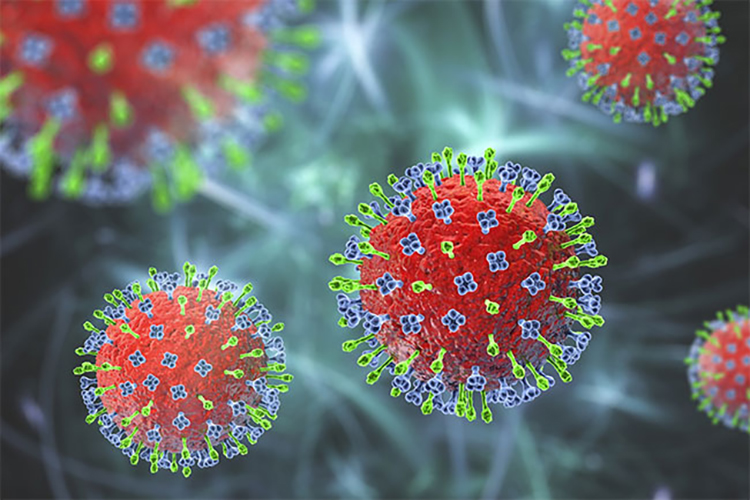
Sri Lanka has stepped up efforts to detect and respond to a potential outbreak of the deadly Nipah virus (NiV), with health authorities enhancing surveillance and laboratory readiness amid growing concerns in the region.
The Medical Research Institute (MRI), the country’s premier laboratory, has upgraded its testing capacity with the latest technology to identify the Nipah virus, enabling early detection of suspected cases, an MRI source said.
Nipah virus is a highly infectious zoonotic disease that can spread from animals
to humans and also through human-to-human contact. Fruit bats are the natural hosts of the virus.
First identified in Malaysia in 1988, the virus has since caused deadly outbreaks in countries including India and Bangladesh. Experts warn that Sri Lanka, with its close human-animal interactions and tropical climate, must remain vigilant against such emerging infectious diseases.
The case fatality rate of Nipah virus ranges from 40% to 75%, making it one of the most lethal viral infections affecting humans. There are currently no specific drugs or vaccines, with treatment relying mainly on intensive supportive care, health specialists say.
Symptoms of infection initially include fever, headaches, muscle pain, vomiting, and sore throat, followed by dizziness, drowsiness, altered consciousness, and neurological signs indicating acute encephalitis. Severe cases may progress to atypical pneumonia, acute respiratory distress, seizures, and coma within 24 to 48 hours.Authorities continue to urge heightened awareness and precautionary measures, emphasizing that early detection and rapid response are key to preventing outbreaks.
by Chaminda Silva ✍️
News
Free Media Movement demands govt. accountability on free speech issues
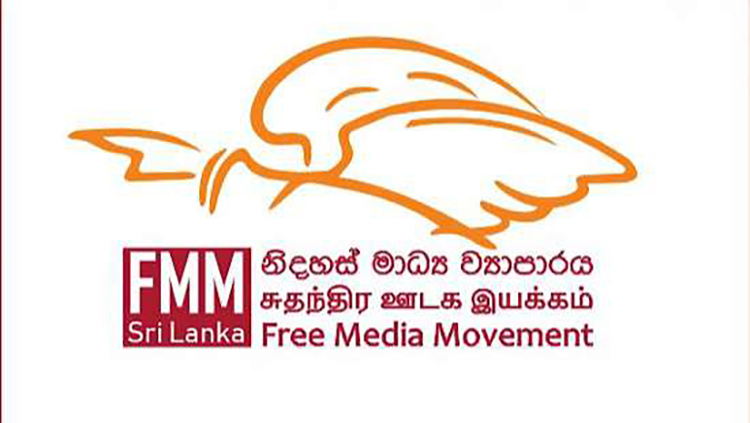
The Free Media Movement (FMM) has demanded government accountability on many freedom of expression issues referred to in a statement issued by the Human Rights Commission in a statement issued last week.
The statement under the hands of FMM Convener Lasantha De Silva and Secretary Dileesha Abeysundera says FMM has paid close attention to the statement issued by the Human Rights Commission (HRC) under reference number HRC/S/i/E/03/02/26. It has also informed that global stakeholders, including the International Federation of Journalists—of which it is a member—that are already closely monitoring this matter.
In its statement, HRC has elaborated at length on the issues that have arisen in Sri Lanka concerning freedom of expression and online safety. It specifically points out that the actions of the Sri Lanka Police have been a major contributing factor to these concerns. The Commission notes that recent conduct of the police has indirectly interfered even with the professional activities of journalists.
HRC has also drawn attention to the practice of summoning journalists and other activists before the police without providing clear reasons, in violation of circulars issued by the IGP. In certain instances, the police have stated that journalists were summoned due to alleged defamation arising from media activities.
However, freedom of expression guaranteed by the Constitution is restricted only within constitutionally prescribed limits. Accordingly, defamation that is no longer a criminal offence cannot be acted upon by the police. Such matters constitute civil offences that must be resolved before courts of law. The Commission further observes that attempts by politicians and others to lodge complaints with the Criminal Investigation Department regarding defamation are efforts to portray defamation as a criminal offence.
The HRC statement also addresses the Online Safety Act. While emphasizing the need to be mindful of online safety, the Commission points out that the current law does not address genuine needs. Therefore, as already demanded by many stakeholders, the government has the option to repeal this Act.
In addition, HRC has outlined a three-pronged approach that should be adopted to safeguard freedom of expression, as guaranteed by the Constitution and in line with Sri Lanka’s commitments under the Universal Declaration of Human Rights of the United Nations.
FMM said it is of the view that the Government of Sri Lanka must give serious consideration to this statement and to the recommendations emphasized therein. “This is a moment in which the accountability of the Sri Lankan government is being questioned. Accordingly, the Free Media Movement urges the government to take immediate steps to implement the recommendations set out in this statement,” it said.
News
Opposition alleges Govt deliberately delaying PC polls
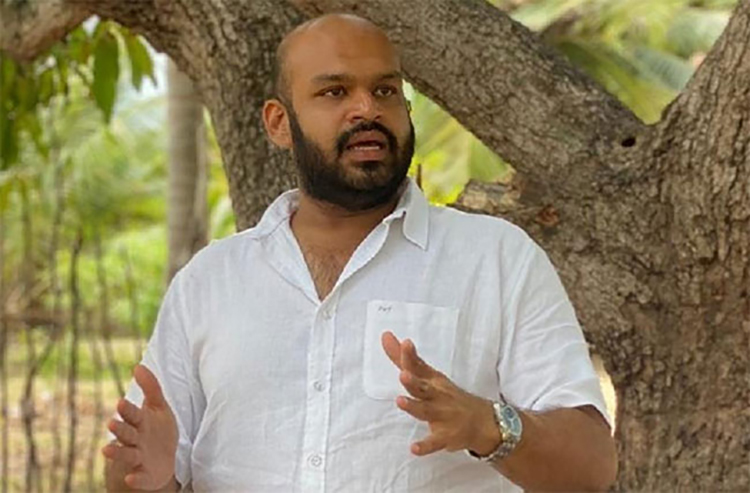
ITAK Batticaloa District MP Shanakiyan Rasamanickam accused the government in Parliament on Friday of deliberately delaying Provincial Council elections, pointing to its failure to nominate members to a Parliamentary Select Committee.
The committee, tasked with considering matters related to Provincial Council polls, was announced on 6 January 2026. Opposition parties submitted their nominees promptly.
However, a month later, the government has yet to name its eight members, preventing the committee from being constituted and from commencing its work, Rasamanickam alleged.
Opposition representatives argue that this delay represents intentional inaction aimed at postponing elections. They urged the government to appoint its nominees without further delay to allow the committee to proceed.
-

 Business2 days ago
Business2 days agoZone24x7 enters 2026 with strong momentum, reinforcing its role as an enterprise AI and automation partner
-

 Business6 days ago
Business6 days agoSLIM-Kantar People’s Awards 2026 to recognise Sri Lanka’s most trusted brands and personalities
-

 Business7 days ago
Business7 days agoAll set for Global Synergy Awards 2026 at Waters Edge
-
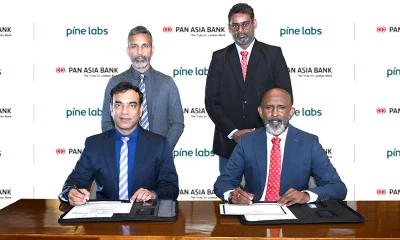
 Business6 days ago
Business6 days agoAPI-first card issuing and processing platform for Pan Asia Bank
-

 Business2 days ago
Business2 days agoHNB recognized among Top 10 Best Employers of 2025 at the EFC National Best Employer Awards
-

 Business2 days ago
Business2 days agoGREAT 2025–2030: Sri Lanka’s Green ambition meets a grid reality check
-

 Editorial4 days ago
Editorial4 days agoAll’s not well that ends well?
-

 Features4 days ago
Features4 days agoPhew! The heat …













